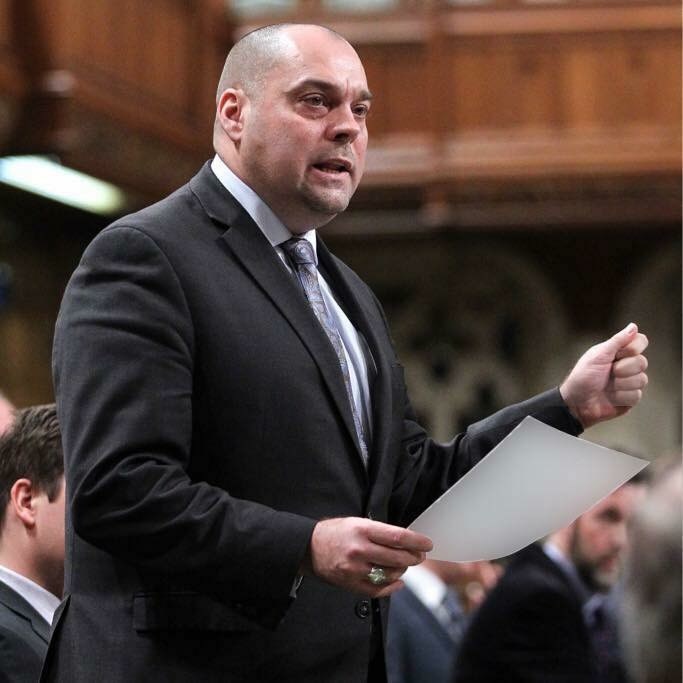Todd Doherty got an early Christmas present Friday when Parliament unanimously approved his bill to give Canadians a three-digit suicide hotline prevention crisis phone line.
The government plans to partner with the Canadian Mental Health Association and Crisis Services Canada to immediately begin working with the provinces to develop 9-8-8 service nationwide.
“It was a great day,” said Doherty, the Conservative MP for Cariboo-Prince George. “The heavy lifting really begins now.”
Doherty told Health Minister Patty Hajdu he’s already established connections with national mental health associations, suicide prevention advocacy groups and telecommunications companies to lay some of the groundwork needed.
According to Statistics Canada, suicide kills on average 11 Canadians per day and 4,000 per year. It is the second-leading cause of death for youths and young adults aged 15-24. Doherty was personally touched by suicide as a 14-year-old growing up in Williams Lake when his best friend chose to end his own life.
Doherty said it was important to have his non-partisan motion approved on the last session of the House of Commons before MPs head into the Christmas break. He sent letters to the other 337 members on Wednesday morning which outlined his reasons why a three-digit phone line is crucial for distraught callers contemplating suicide.
“There’s a growing rate of suicides throughout the pandemic and the holiday season is one of the worst times for depression and mental health issues,” said Doherty. “ I just implored them that we can keep our partisan swords out at all times and not really get anything done or we can actually work together and leave a legacy of action.
“There was widespread support from people on all sides. Now it’s a will of Parliament, the government has to get this done. The government has to do everything in their power to work with the provinces to consolidate all of our national suicide hotlines into one easy-to-remember three-digit number, 9-8-8.”
Doherty was unable to provide a cost estimate of what it would take to implement 9-8-8 service. The United States, which plans to have its suicide hotline in place by the summer of 2022, has budgeted $570 million of the first year and $175 million for the second year, which includes the cost of a public awareness campaign.
“We have the U.S. numbers but I think ours are going to be significantly different because while we are geographically challenged we are not as vast of a country as the U.S.,” said Doherty. “I was heartened to find out the Canadian Mental Health Association has been doing a lot of the work on the technology needed to deliver this, so that it’s not tied up in months and months of study. There’s a concerted push at all levels to make sure we deliver 9-8-8 to Canada in a significant timeframe.”
Crisis Services Canada has already received $5.5 million in federal finding between 2015-21 to set up a 24-hour bilingual suicide crisis line (1-833-456-4566) which also gives Canadians text access (45645) to mental health counseling eight hours per day.
Doherty is involved in Bill C-10 to amend the Broadcasting Act (1991) and in his research he learned that in July 2006 the Canadian Association for Suicide Prevention was denied in its application to the Canadian Radio-television Telecommunication Commission (CRTC) to develop a three-digit (5-1-1) mental health hotline for the country.
“They said they couldn’t demonstrate a need for it,” said Doherty. “We do have concerns over giving the CRTC such widespread authority. Imagine how many lives may have been saved if this was passed way back then. 2020 has been a challenging year; we’ve seen lives and livelihoods lost, growing rates of suicide, domestic violence and substance abuse.
“Thousands and thousands of people have been affected by suicide, whether it’s the families who have been left behind or those who are struggling silently who thank us for giving them hope. I challenged my colleagues and said we have to go beyond hope. In my speech at the end of Question Period, I hope my final act in this house in our most challenging year is one of action, because we can save lives.”



